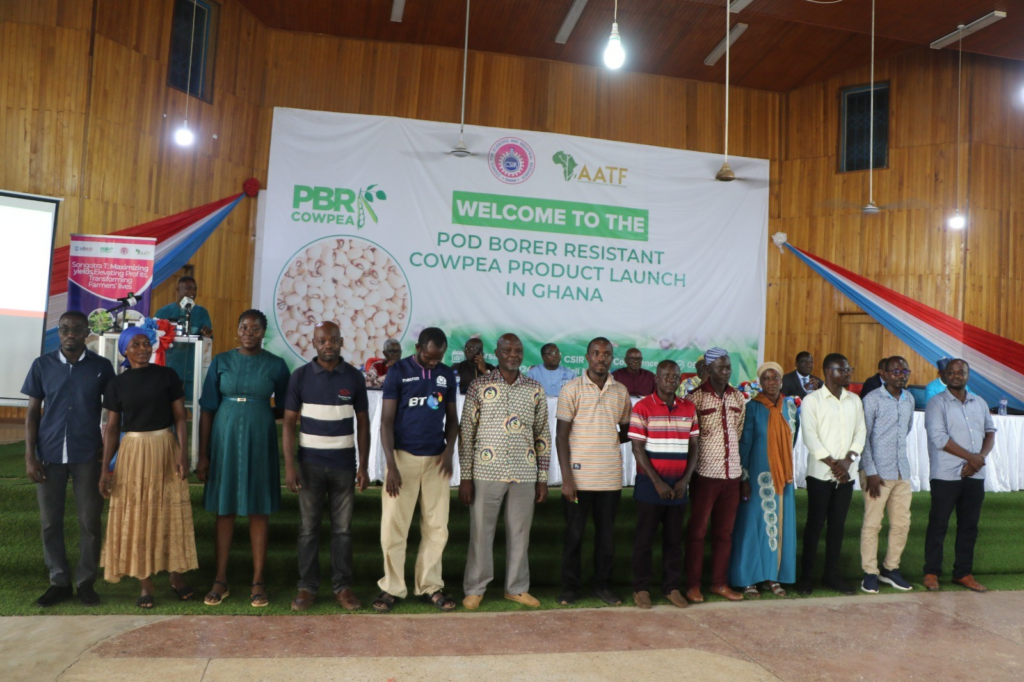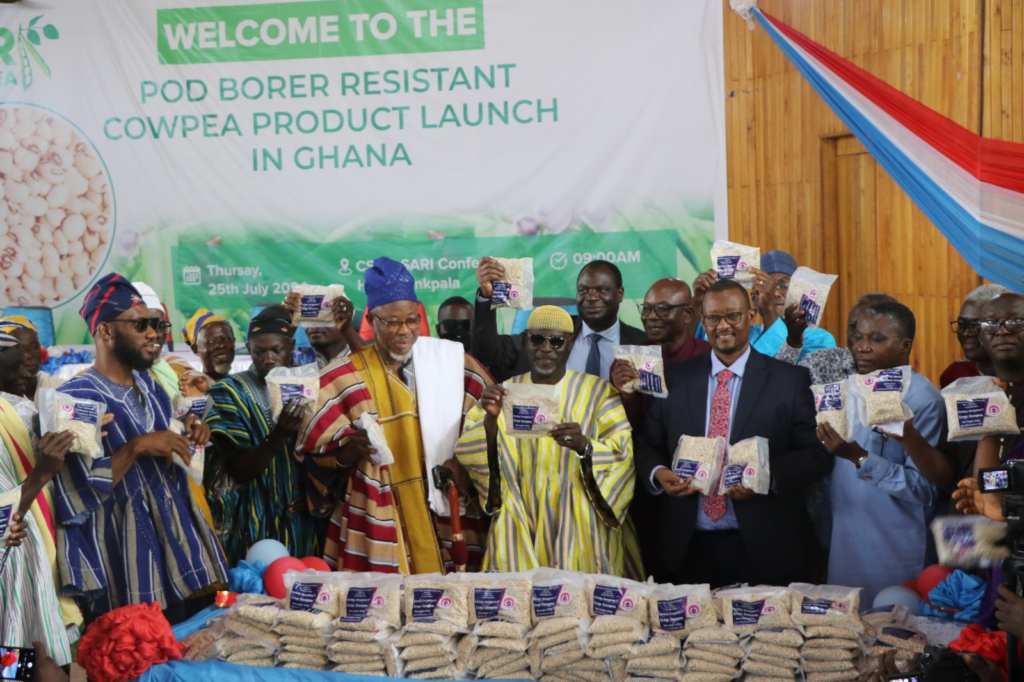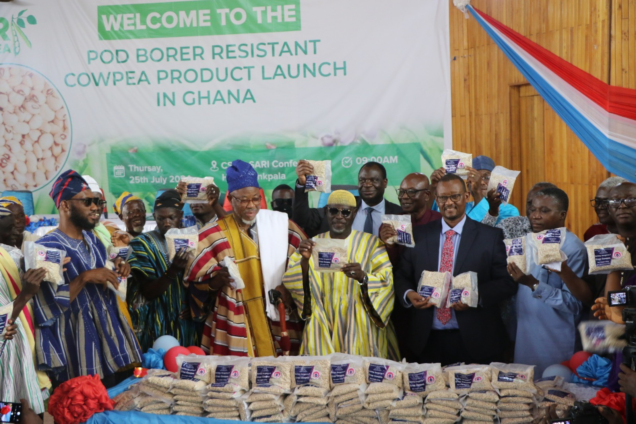
Audio By Carbonatix
The Council for Scientific and Industrial Research-Savanna Agricultural Research Institute has released the pod borer-resistant (PBR) cowpea, the first genetically modified crop (GMO) to be developed in the country, for commercial cultivation.
This cowpea variety is resistant to diseases and pests, particularly the pod borer, matures early, is highly nutritious, and produces higher yields.

With support of partners such as the United States Agency for International Development, and the African Agriculture Technology Trust Foundation (AATF), it took CSIR-SARI over a decade of research to get this PBR cowpea variety, as well as secure the necessary regulatory approval for its commercialisation in the country.
Professor Paul Bosu, Director-General of CSIR, speaking during the launch of the PBR cowpea at Nyankpala in the Northern Region on Thursday, said the release of the variety was in line with efforts towards food security in the country.
Cowpea is a vital crop for many smallholder farmers in the country, and it is a major source of protein and other nutrients for households, and its cultivation supports the livelihoods of many farmers.
However, the productivity of cowpea has been severely hampered by devastating impact of the pod borer pest; this pest can cause yield losses of up to 80 per cent leading to food insecurity and economic hardship for farmers hence the PBR cowpea.

Professor Bosu noted that the release of the variety was a special day for the country, saying CSIR was committed to cutting edge science to address national challenges.
The Northern Regional Minister, Alhaji Shani Alhassan Saibu, whose speech was read on his behalf, said the release of the variety was testament to government's commitment to advancing agriculture through technology.
He added that by releasing the variety, "We are taking bold steps towards food security and improving the livelihoods of the people."

Chairman of the board of Trustees of AATF Professor Aggrey Ambali,said, "By adopting the PBR cowpea, farmers can look forward to improved productivity, increased incomes, and enhanced food security. The benefits of this innovation will go a long way in contributing to poverty reduction and better livelihoods of farming communities."
Various stakeholders, including farmers and seed producers, in solidarity messages, expressed gratitude to partners for releasing the variety to boost productivity and incomes.
Latest Stories
-
Ghana is rising again – Mahama declares
4 hours -
Firefighters subdue blaze at Accra’s Tudu, officials warn of busy fire season ahead
5 hours -
New Year’s Luv FM Family Party in the park ends in grand style at Rattray park
5 hours -
Mahama targets digital schools, universal healthcare, and food self-sufficiency in 2026
5 hours -
Ghana’s global image boosted by our world-acclaimed reset agenda – Mahama
5 hours -
Full text: Mahama’s New Year message to the nation
5 hours -
The foundation is laid; now we accelerate and expand in 2026 – Mahama
6 hours -
There is no NPP, CPP nor NDC Ghana, only one Ghana – Mahama
6 hours -
Eduwatch praises education financing gains but warns delays, teacher gaps could derail reforms
6 hours -
Kusaal Wikimedians take local language online in 14-day digital campaign
7 hours -
Stop interfering in each other’s roles – Bole-Bamboi MP appeals to traditional rulers for peace
7 hours -
Playback: President Mahama addresses the nation in New Year message
8 hours -
Industrial and Commercial Workers’ Union call for strong work ethics, economic participation in 2026 new year message
9 hours -
Crossover Joy: Churches in Ghana welcome 2026 with fire and faith
10 hours -
Traffic chaos on Accra–Kumasi Highway leaves hundreds stranded as diversions gridlock
10 hours

